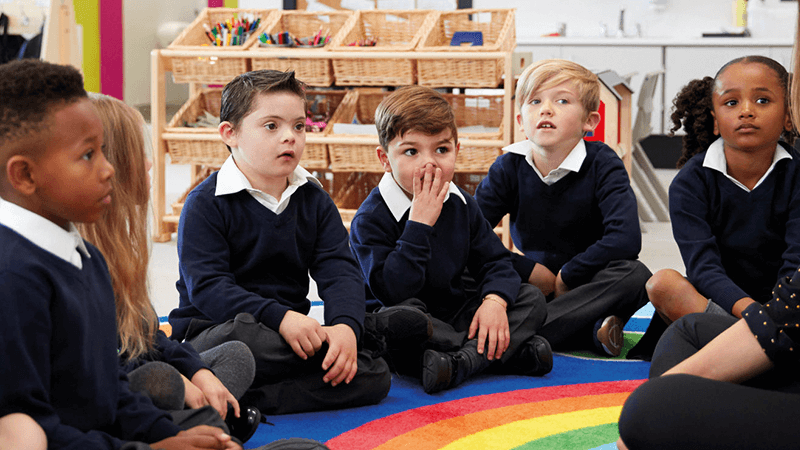Scot Govt guidance parrots trans ideology

New Scottish Government guidance backs children as young as four ‘changing sex’ in school and allows parents to be kept in the dark.
The document[1], which was issued by Scotland’s Education Secretary Shirley-Anne Somerville last week, says some children “are exploring their gender identity in primary school settings” and schools should support children who think their gender is different from their biological sex.
Recommendations
It states parents are “important” and recommends getting parental consent in some situations. But it also says “good practice” is to tell a young person their information will not be shared “with anyone unless they give their permission or there is a risk to themselves or others”.
School staff are informed that “it is best to not share information with parents or carers” on a pupil’s gender identity “without considering and respecting” the child’s views.
In announcing the guidance for Scottish schools, Somerville claimed it does not “promote transitioning”. This is questionable at best, given the assumptions underlying the guidance and the activist language that litters it.For the Scottish Government to come down so firmly on the side of trans activists is bad for schools, families and society
Biological sex becomes “sex assigned at birth”. Teachers should “respect a young person’s wishes and use the name/pronoun they have asked to be used” – with no acknowledgement that teachers’ beliefs should be accommodated where possible. To raise awareness that “not every child will identify as the sex they were assigned at birth”, primary schools are encouraged to use resources “which challenge gender stereotypes and include transgender people”. (Ironically, recommended books include ‘I am Jazz’, which itself uses a series of gender stereotypes to ‘reveal’ that Jazz is really a girl, not a boy.)
Trans role models are to be used to have “a normalising effect”. “Unsupportive” – that is, non-trans affirming – parents are said to be damaging for children’s health and likely labouring under “misconceptions” that the school should “correct”. LGBT Youth Scotland, Scottish Trans Alliance, Stonewall and Mermaids are listed as organisations that could provide ‘additional resources’.For the Scottish Government to come down so firmly on the side of trans activists is bad for schools, families and society
Bias
This bias is inevitable because, as the Scottish Government acknowledges, the guidance was developed from a 2017 LGBT Youth Scotland publication. This was a deeply problematic starting point. LGBT Youth Scotland’s ‘Supporting Transgender Young People’ was originally endorsed by the Scottish Government. It backtracked after The Christian Institute threatened legal action , warning the document was incorrect, misleading and misguided.
There are places where it’s obvious – and welcome – that concerns we raised in our legal letter to the Scottish Government have been taken on board. Lip service is paid to other perspectives where there was none before. The rights of non-transgender pupils are acknowledged. The law is quoted more accurately. Parental involvement is given more prominence. So the new guidance is an improvement on the 2017 LGBT Youth Scotland version. But that is a very low bar.
The question of how best to help children and young people confused about their gender is hugely controversial. For the Scottish Government to come down so firmly on the side of trans activists is bad for schools, families and society.
[1] Paragraph 120 https://www.gov.scot/binaries/content/documents/govscot/publications/advice-and-guidance/2021/08/supporting-transgender-young-people-schools-guidance-scottish-schools/documents/supporting-transgender-pupils-schools-guidance-scottish-schools/supporting-transgender-pupils-schools-guidance-scottish-schools/govscot%3Adocument/supporting-transgender-pupils-schools-guidance-scottish-schools.pdf
